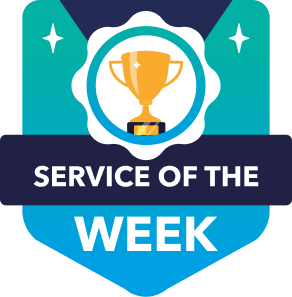Ranking your website on Google requires help from an experienced search engine optimization (SEO) consultant.
Normally, you need a consultant who can do on-page optimization and link building for you. This person should be enough to help your site rank for your target keyword on search engine results pages (SERPs), assuming they know what they're doing.
However, you need to know first what your website needs to hire the right SEO consultant that suits your needs.
In this case, if you got your basic SEO covered and are looking to solve more complex SEO issues involving your website set-up, this is the realm in which technical SEO consultants operate.
This post discusses what this type of consultant is all about and what makes her different from the rest. It also dives into the other technical SEO services that this consultant offers and who the top consultants are to reach out to with your technical SEO issues.
What's a Technical SEO Consultant?

A technical SEO consultant ensures that search engines can crawl and index your website to rank your site pages for your desired keywords.
Much of the work these consultants do takes place from within the site, similar to on-page SEO consultants.
However, instead of worrying about basic on-page SEO practices, these consultants are proficient with front-end developer skills (HTML, CSS, JS) and back-end server-side languages (PHP, C#, etc.).
This mainly involves them getting the most out of the content management system (CMS) the website is using, thus allowing them to optimize websites from an infrastructure level.
Aside from this, they also deeply understand how website crawlers work and the process involved in getting them to crawl and index web pages.
Even if your site pages have great content and high-quality links pointing to them, they won't rank unless Google can find them online.
So, if you encounter problems similar to the one above, technical SEO consultants should be able to help you.
What's the Difference Between an SEO Consultant and Technical SEO Consultant?

The biggest difference between SEO and technical SEO is the knowledge of front-end and back-end languages.
SEOs are not required to know them since they concern themselves with creating content optimized for their keywords and acquiring backlinks from highly reputable websites.
Technical SEOs can do these as well, but they're more concerned with the website infrastructure and how it interacts with search engines.
For example, they will be able to spot technical elements such as how a site's response headers play a role in an HTTP request via a content delivery network (CDN), something that SEO consultants wouldn't know at all.
At the same time, you don't go to technical SEO consultants for your content and link building needs. While they are familiar with both, these aren't something they offer as a service (unless they are skilled in the technical and practical aspects of SEO).
In most cases, you want to hire a separate SEO who will take care of the on- and off-page side of SEO for you. This way, the technical SEO will worry about getting search engines to find your website.
Ultimately, you need both consultants to generate more organic traffic to your website.
What Services Does a Technical SEO Consultant Offer?
The consultant's main task is to run technical SEO audits on your website to spot issues and errors and provide suggestions on how to fix each one.
It's one thing to use website audit tools that provides you with issues you must fix on your site. It's another to take action on these issues to improve them and help your site increase its search rankings.
This is why you need technical SEO consultants once you start getting into the nitty-gritty of your website issues. Tools can help you spot problems on your website, but they won't help you fix them, especially when you don't have the skills and knowledge these consultants have.
So, if you're shopping for a consultant or even a technical SEO company that will take the load off your website, below are the services they offer, and you should look for:
Establish Site Architecture
Website architecture refers to how you structure your pages on your site based on your internal links.
The goal is to interlink all related pages and back to the homepage, allowing you to circulate your site's link equity or PageRank across all these pages.
This is done by creating tiers on your site, which go something like this:
- Homepage - Your domain URL
- Landing pages or categories/subcategories - These are pages optimized for keywords with commercial intent on your site where you convert visitors into leads or clients of your business. E-commerce sites use categories or subcategories to feature the different products available.
- Product pages - Pages dedicated to providing all the information visitors need to decide whether to purchase the product.
- Supporting pages - These serve to help your landing or product pages increase their organic search rankings. They normally are blog posts that provide additional information about the product or service.
Below is what an optimized or "flat" site architecture looks like:

In the example above, the "About," "Blog," and "Services" pages are the landing pages. In particular, the "Services" is where the site most likely receives visitors bound to become clients.
The site further breaks down its services into smaller services, similar to how an e-commerce website features subcategories to help visitors find the product they're looking for.
The "Blog" page, on the other hand, has topics (which can serve as mini landing pages) and subtopics, which work as the topic's supporting articles.
Now, compare the site architecture below to the one below:

There seem to be no issues about its internal linking from the untrained eye. But below are some of the major flaws that will keep search engines picking your site pages up sooner than later:
- Pages far away from the homepage - To make the crawling and indexing process of your site by search spiders much easier, all your pages should be no more than three clicks away from your homepage.
- Pages don't have internal links - Also referred to as orphaned pages, they don't have links pointing to them from other pages on your site.
- Inconsistent structure - Some topics and subtopics have supporting pages linking to them, while others have only a few, if at all.
- Pages linking to non-existing pages - Known as broken links, they break the chain built by your internal links, allowing link equity to escape your site and dampening the user experience.
How you structure your site is indicative of how you want to present your site pages to search spiders. While this might not seem important to users, it is crucial to site owners if you wish to increase your organic search performance in the long run.
This is one of the things a technical SEO consultant evaluates. They look at the site's technical SEO audit results and determine the best course of action regarding structuring the site using internal links.
The hardest part of this task is that not all websites are the same.
For example, just because a site is an e-commerce site doesn't mean it must follow the same structure as other successful online stores.
It's possible that the site has a blog section and even offers different services to its audience, all of which could complicate the internal linking process.
In this case, it's up to the technical SEO consultant to decide how to structure the site and improve its crawlability and indexability.
Improve Crawl Budget Usage
For websites that are having a difficult time ranking all their pages, it's probably because Googlebot cannot crawl through all of them in a period.
Due to the sheer volume of pages published regularly by websites, Google can only crawl so many of them. This is why each site is given a crawl budget to work with.
When your site maxes out its crawl budget, it will take time before Google resets your crawl capacity. Until then, you won't be able to get more of your pages indexed even if you keep publishing new content.
So how can you save up on your crawl budget?
For starters, you don't want to keep churning out content for the sake of doing it. Instead, you want all the content you publish serves a purpose in the long run, especially when ranking for Google search.
You also deplete your crawl budget if you use lots of redirects on your site. A redirect is a website command that brings users to a page different from the one they initially visited.
To save up your crawl budget, you want to link to the actual page on your site instead of linking to the old URL that redirects to the new one.
Finally, duplicate content is another culprit that needlessly spends your crawl budget.
This is common among e-commerce sites where the same content has different URLs. For example, product pages with the same content may appear on sites where the product is seen in different categories.
This redundancy may confuse search engines in choosing which version to rank on organic search. Of course, the worst-case scenario is that they might now index your page!
With help from technical SEO consulting, you can save your site from bleeding its crawl budget and get all your pages crawled by Googlebot.
Using different tactics depending on the crawl budget issues found, the technical SEO specialists will help search engine spiders make crawling all your site's important pages more efficient.
One of the tactics they use is server log analysis.
The consultant will download your log file from your server containing all the requests and activities on your site. It shows the visitor's IP address (if it's human), ID, time and date, status code of the URL visited, and the page's file size.
From here, identify from the log entries URLs on your site that users can access but shouldn't because they're wasting your crawl budget. This includes CSS files, internal scripts, and others.
Optimize Page Experience
Once your audience is on your site, the last thing you want is for them to leave just as fast as they got there.
Unfortunately, sites that load longer than five seconds see 24% of their visitors leave.

This is why focusing on improving your site's loading speed is vital to its success. The faster your site loads, the more people will stay on your site and browse your content and other pages.
From an SEO perspective, however, there's more to worry about than just site speed, in which the biggest element on your part takes less than 2.5 seconds to load (Largest Contentful Paint).
Google's Page Experience update early this year enforces site owners to provide users with a positive experience of showing their content.
This includes ensuring all your website elements respond appropriately, especially buttons (First Input Delay), and the layout remains stable while loading (Cumulative Layout Shift).
To help site owners see how they measure with Google's most recent update, PageSpeed Insights allows them to measure their sites' Core Web Vitals (CWV) scores.

The score combines all the above factors to help users understand how Google sees their site's page experience.
The good thing about PageSpeed Insights is that it lists all the issues that need your attention and ways to fix them.
Some of the fixes are easy enough for non-technical SEOs to do, but most require the hand of a really good technical SEO consultant.
The majority of these issues involve server and caching knowledge to fix properly.
Manage Website Migrations Smoothly
Some site owners may migrate their websites for reasons such as moving to a new web host or CMS to improve speed and functionality.
Regardless of what they are, they must be aware that website migration is a huge undertaking.
There are many moving parts involved in the process, and one wrong thing happening is akin to a domino tipping over, causing other dominos to fall.
That means they could lose all the organic traffic they've built through the years.
If you're in the same boat of migrating your website, consult a technical SEO on what to do first before doing something you might regret later.
If you hire a consultant to manage the migration for you, expect them to do the following:
- Plan the migration by setting the goals and timelines of the entire process. They'll also gather all the necessary data using an audit tool to benchmark the migration. The goal is to ensure that the same data shows up after completing the migration, which indicates that the migration is a success.
- Create a copy of your site on a new server. This is where you conduct your migration to keep your current site operational and get your migration plans moving.
- Block search spider access to the copy of your site using robots.txt and the noindex tag to prevent it from competing with your live site.
- Once the process is complete, run an audit check for issues, then compare the results to the initial audit you ran.
- If all's good, move the DNS value to the new site and fix robots.txt so that search spiders can now index the site.
- If the migration involves moving domains, redirect the old one to the new domain using .htaccess. This allows you to retain your rankings for the same pages with new URLs. The consultant may have to create a URL and redirect map that lists down all the links to pages that requires a 301 redirect.
- Install the codes of Google Analytics and Google Search Console to the new site so they monitor the site's performance moving forward.
These are just things the consultant will perform, depending on the website they're migrating to.
But based on the tasks listed above, you wouldn't want just anybody to do your website migration.
Hiring a technical SEO consultant prevents the risk of losing your site's organic traffic from happening. This way, you can enjoy a much better-performing website after a seamless migration.
Top Technical SEO Consultants for Hire
We've extensively covered what the right technical SEO consultant will do for your website once you decide to ramp up your site's SEO performance.
But I'm also aware that I dropped a lot of stuff that may sound foreign to most.
Digesting everything may take a while, especially for site owners new to the world of technical SEO.
In the meantime, below are people you should consider once you're ready to get help with your technical SEO strategy.
Pitty123
Pitty123 is a Level 3 Legiit seller with over 40+ reviews averaging 4.4 stars as of writing. His main service is providing people with actionable on-page SEO audit reports using the CORA SEO Software.
Unlike most tools, CORA is known for checking pages across over 2,000 ranking factors to give users a bird's eye view of the site's issues and problems.
The tool then offers suggestions on how you can fix each issue to optimize your content and make it comparable to the top-ranking pages for your search query.
His services cost $11/report, including backlink data from Ahrefs, Moz, and Majestic. These give buyers a 360-degree view of their websites and the things you must do to fix them.
Volarex
Volarex is one of the most highly rated technical SEO consultants on Legiit, with a perfect 5.0-star rating from 39 reviews.
Using SEMrush as his main SEO audit tool, he provides buyers with a full site audit report containing issues they must address and suggestions for fixing them.
This ensures that buyers know why their websites are probably not ranking as high as they intend to. And by implementing the general fixes, they should eventually see an increase in crawling and indexing, resulting in more pages ranking on top of SERPs.
He offers his audit services starting at $8 (currently 40% off) for a single domain. For more sites, you can get his $20 (for two sites) and $50 (for five sites) offer.
ilias
Anotehr Level 3 Legiit seller, ilias has accumulated over 31 reviews with an average star rating of 4.9. His specializes in providing users SEO site audit reports to help them fix any problems that are preventing Googlebot from crawling and indexing their websites.He offers three services:
- Basic ($6/report) - Provides an SEO audit report with guidelines site owners can follow.
- Standard ($10/report) - Includes competitor analysis and action plan alongside the audit report.
- Premium ($13/report) - Includes everything in the Standard plan plus custom on-page optimization suggestions.
Chris M. Walker
Of course, we would be remiss if I didn't mention Chris's technical SEO report service on Legiit. With a 5.0 star rating from 69 customers as of writing, you will receive a stellar and comprehensive audit report for ten websites for $100—that's $10 per site!His experience in SEO is well-documented. As the owner of Superstar SEO, he has helped local businesses and freelancers level up their websites and SEO skills to rank on top of search results, even for the toughest keywords.
Through his Legiit service, Chris uses Sitebulb, an SEO audit tool for consultants, to pinpoint issues that owners need to attend to on their websites.
Conclusion
As you can see, you must factor technical SEO consultants into your consideration if you want to get the most out of your website.Initially, the most challenging part about technical SEO is understanding its difference from regular SEO and identifying the responsibilities of a consultant if you choose to hire one.
Thankfully, this post covers all that, and a shortlist of the most reputable technical SEO experts you can reach out to for your needs. You should have all the information you need to decide how to take your website to the next level through technical SEO.













 Download
Download